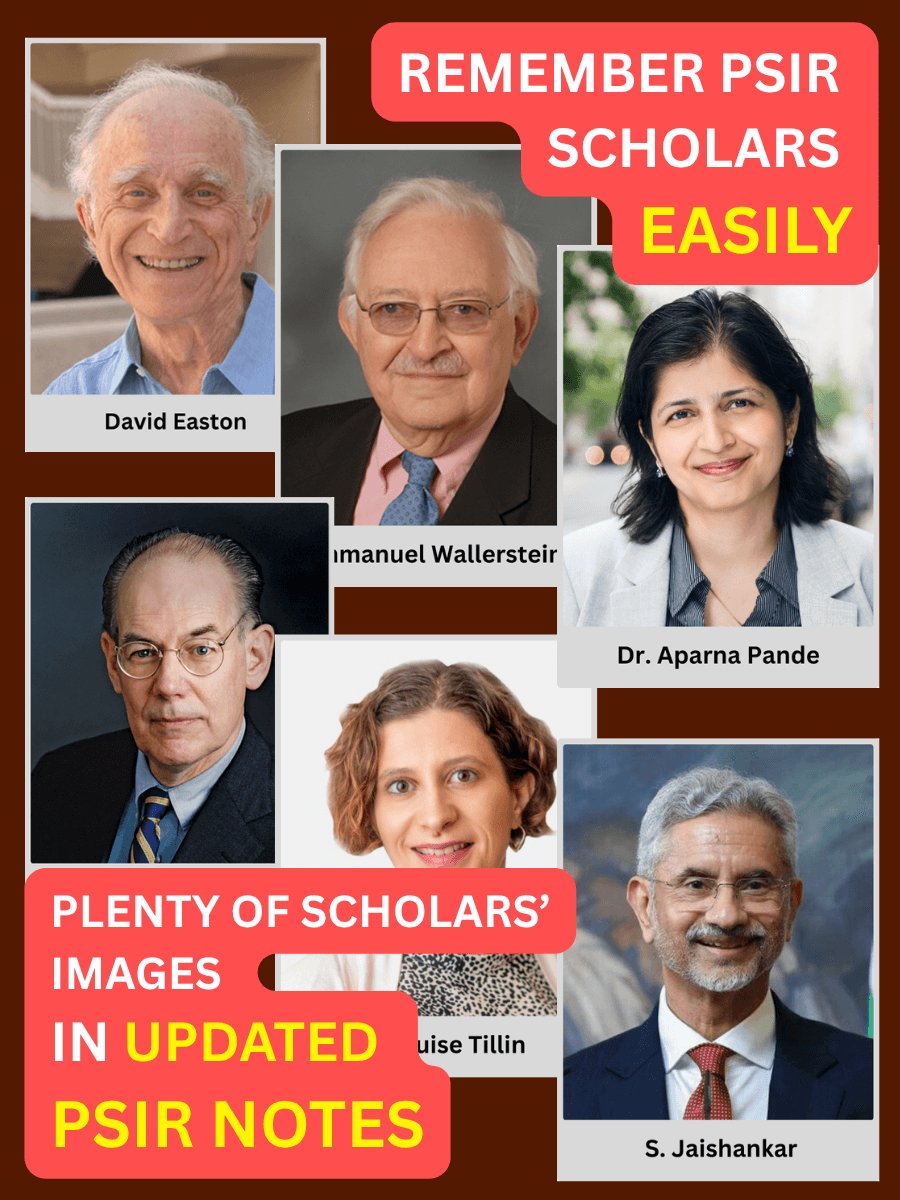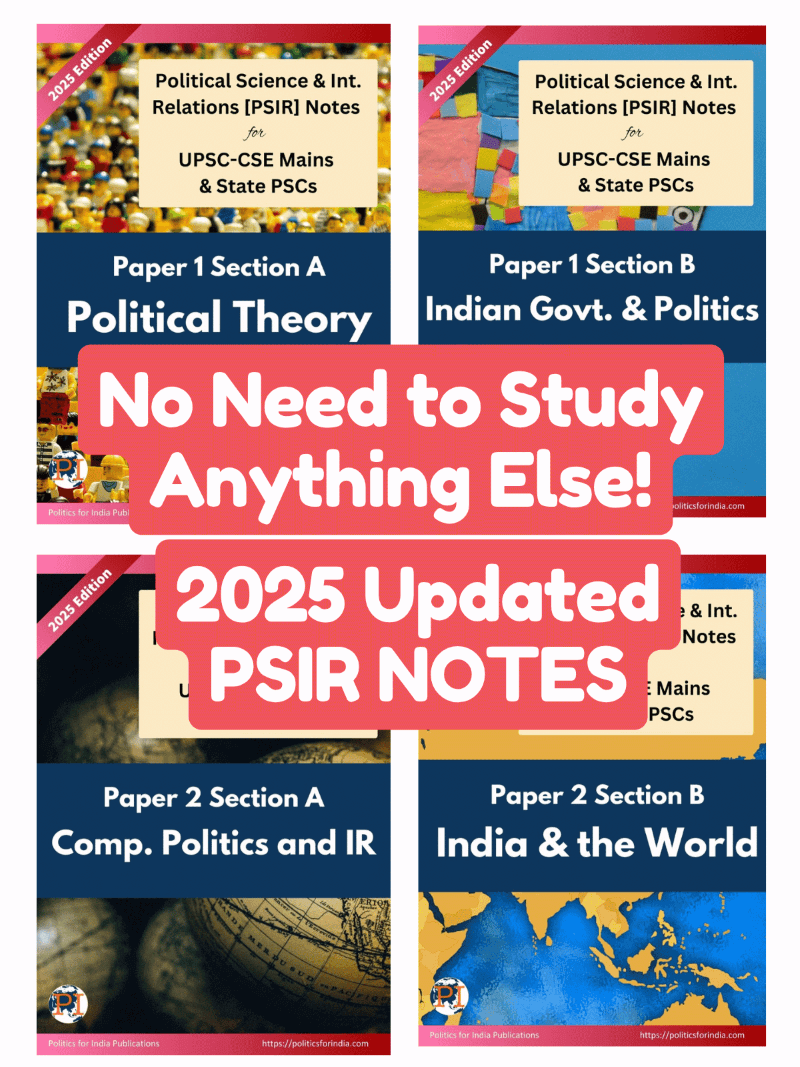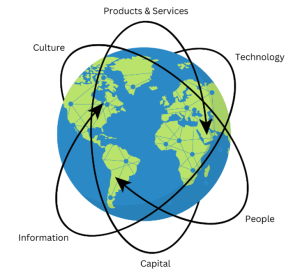The concept of Balance of Power (BoP) has been a cornerstone of international relations, evolving over centuries to address the shifting dynamics of global politics. David Hume calls it common sense. According to him, Balance of power will remain relevant so long common sense is relevant.
The balance of power refers to a condition where power is distributed among various states or alliances in such a way that no single entity can dominate or impose its will upon others. This equilibrium is maintained through strategies like enhancing one’s own capabilities (internal balancing) or forming alliances (external balancing) to counteract potential threats. The primary aim is to prevent any one state or group from achieving hegemony.
1] Origins and Early Development of ‘Balance of Power’
The idea of balancing power among states can be traced back to ancient Greece and Rome, where city-states and empires sought to prevent any single entity from dominating others.
The Westphalian system, established by the Peace of Westphalia in 1648, serves as a foundational example of the balance of power in international relations. This system introduced the principles of state sovereignty, equality among states, and non-intervention in domestic affairs.
It sought to prevent the emergence of a hegemonic power in Europe. The equilibrium was maintained through alliances and diplomacy, ensuring that power remained distributed.
The famous historian APJ Taylor mentions 1848 to 1914 as the golden age of balance of power. European countries formally adopted the concept in 1815 in Vienna Congress which has given rise to the concert of Europe where the countries of Europe gave guarantees to ensure the balance of power so that peace is maintained. The concert of Europe gave 100 years of peace to Europe. i.e. Still 1914.
2] Core Assumptions and Mechanisms of Balance of Power
Balance of power assumes that the the international system lacks a central authority, leading states to rely on self-help mechanisms. States are primary actors with ultimate authority within their territories. States continuously seek to accumulate power to secure their interests and deter adversaries.
To ensure balance of power states, employee internal, and external balancing. Internal Balancing suggests enhancing one’s own military and economic capabilities. While external Balancing means forming alliances with other states, to counteract a more powerful state.
States also use following techniques to achieve balance of power – arms race, formation of buffer states, disarmament agreements, territorial adjustments, imposition of reparations post-conflict etc.
3] Theoretical Interpretations of ‘Balance of Power’
A] Realist view on Balance of Power
Kenneth Waltz introduced structural realism. For him, the anarchic nature of the international system compels states to balance power to ensure survival.
B] Liberal Critique of Balance of Power
Woodrow Wilson criticized BoP for perpetuating war. Instead he advocates collective security through international institutions like the League of Nations.
Pandit Nehru, described BoP as a “nervous state of peace,” highlighting its inherent instability and the constant fear of conflict.
C] Constructivist View on Balance of Power
Social constructivists suggest that the balance of power theory overlooks the role played by norms and values. It overemphasise on the material structure. Here the material structure is anarchy but it is the result of norms and values that anarchy is interpreted in the specific way giving rise to power politics. As suggested by Alexander Wendt, Anarchy is what states make of it.
4] Evolving Nature of BoP
Balance of power, despite being recognized as the fundamental law is seen as ‘murky concept’. There is a vagueness in the way balance is explained. Sometimes balance means A=B, sometimes balance denotes A-B = Remaining (similar to economic concept.). There are different ways scholars describe balance concept.
Hans Morgenthau has identified multiple interpretations of BoP, ranging from policy strategies to actual distributions of power. Ernst Haas outlines eight different meanings, reflecting the concept’s complexity and the challenges in its application.
There are also alternative theories to the concept of BoP.
Stephen Walt proposes Balance of Threat. For him, states balance against perceived threats rather than mere power disparities, considering factors like proximity and offensive capabilities.
A.F.K. Organski has given a power transition theory which suggests that major conflicts are likely when a rising power threatens to surpass a dominant one, leading to instability during power transitions.
The concept of soft Balancing involves non-military tools—such as international institutions, economic statecraft, and diplomatic arrangements—to delay or undermine aggressive unilateral actions by dominant powers.
The concept of asymmetrical balancing addresses the challenges posed by non-state actors and the asymmetry between states and these entities, requiring new strategies beyond traditional BoP approaches.
Theoretically nuclear weapons also challenges the relevance of the need of balance of power. According to Bernard Brodie, states should try to gain nuclear deterrence rather than the balance of power.
5] Relevance of Balance of Power
A] Why Relevance is Questioned?
The relevance of BoP is called into question first by the liberals/idealists like Woodrow Wilson. According to Woodrow Wilson, balance of power is prone to war. Balance of power can convert any local war between two countries into world war because countries are linked in alliances. Hence it is said that BoP gives protection against measles but create conditions for plague, a bigger epidemic.
Even Pandit Nehru was a critique of BoP, he described BoP as ‘nervous state of peace’. Means there is always a fear of war as countries possess nuclear weapons.
Hence Woodrow Wilson wanted to end the reliance of countries on BoP and gave the concept of collective security. However collective security could never emerge as a viable alternative to balance of power so that states leave their alliance on power politics.
It is also suggested that the ideal conditions of operation of BoP has ceased to exist and thus, the concept is no more relevant.
Ideal Conditions for BoP
- Westphalian world order rather than anarchical society or complex interdependence.
- Balance of Power as a concept makes sense in regional situations. Politics at present has become global.
- Balance of power operates in multipolar situation, it neither operates in the state of unipolarity nor bipolarity. The world order in last few decades is defined by unipolarity.
- BoP is based on conventional warfare. The nuclear weapons and the technological warfare may cause the BoP go into irrelevance. The emergence of nuclear weapons has been a serious challenge to balance of power. Additionally, in western Europe BoP has become redundant because of emergence of ‘security community’ (NATO).
- In present times, the challenge to the security of states come from non-state actors. Non state actors can operate from any soil. Failed states are most fertile soils. If attack comes from non-state actors capturing a country which is friendly, it would not be easy to initiate war.
B] How it is Still Relevant
The rise of China, resurgence of Russia, and the growing influence of India suggest a shift towards a multipolar system, reinvigorating BoP considerations.
It is to be noted that non-state actors are actually the proxies, it is true that nuclear weapons, has challenged the importance of the conventional weapons but it is also true that nuclear weapons are not to be used. Hence the importance of conventional weapons will never go out of relevance. Even in the 21st century, we can observe nations exercising the game of BoP.
We can see the game of BoP going on in Asia Pacific. It is because of the game, the centre of gravity of international politics has shifted towards Asia Pacific. The rise of China has forced USA to go for Asia rebalance/Asia pivot policy. As a part of Asia pivot policy, there is a greater deployment of US marines in the region. The neighbours of China like India, Japan, Australia are going for the formation of alliances and quasi-alliances. According to the scholars, there is a high probability of conventional war between India and China as a part of USA’s policy of buck passing or bait and bleed. All the major countries are acquiring conventional weapons. To quote David Hume again, “so long common sense remains relevant, Balance of Power will remain relevant.”









